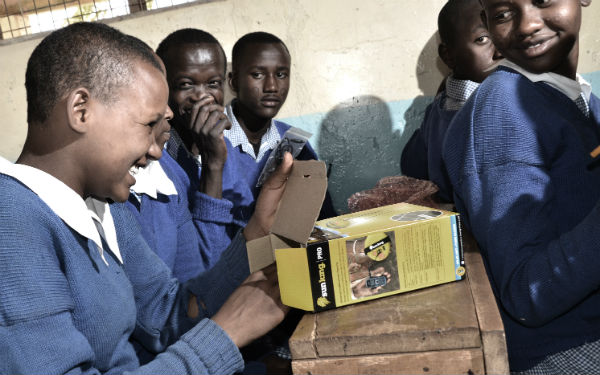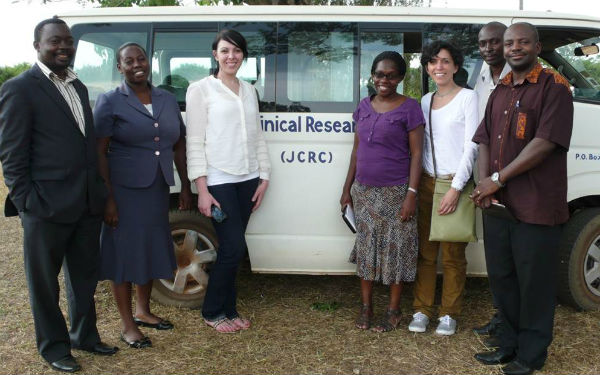New Research Initiative to Investigate the Impact of Development Aid
Posted on: 22 September 2015
Identifying what development aid investments really work is the aim of a new research initiative in Trinity College Dublin launched by Michael Gaffey, Director General of Irish Aid on Monday, September 21st, 2015.
The new research group, Trinity IMpact Evaluation (TIME) Unit, brings together researchers working on micro-economic impact evaluations, development practitioners, and policy makers in an effort to understand the impact of development aid investments. It aims to contribute to the global understanding of what development aid works and doesn’t work by investigating the processes and underlying causal mechanisms of economic development.
“TIME will provide researchers, development agencies and governments with strong evidence of what works, so that better investments that have real impact on the development process can be made,” explains Carol Newman, Associate Professor of Economics at Trinity and co-founder of TIME.
The research initiative is led by the Department of Economics at the School of Social Sciences and Philosophy in collaboration with the Trinity International Development Initiative.

Research projects currently being undertaken by the group include:
- The Nourish Project: An assessment of the impact of nutritional information campaigns, nutrition training courses and women in business empowerment campaigns on the lives of 4,000 women in 32 rural HIV clinics in Uganda (Irish Aid Funded)
- Powering Education: An assessment of the impact of solar lamps on the educational performance of 300 pupils in off-grid areas in rural Kenya. Researchers found that solar lamps improved the grades in mathematics of both the students who received the lamp and of those that didn't thanks to spillover effects. Researchers also found a positive effect on employment of fathers and mothers and a 15% increase in family savings.
- Digitising Savings Groups: An evaluation of the role technology can play in the success of savings groups focusing on 3,600 members of savings groups in Kenya who are using an e-recording device to record savings transactions.

In addition to the production of high quality research, TIME will also facilitate the dissemination of research more widely and provide training to development practitioners on rigorous methods of impact evaluation.
Speaking at the launch Prof Carol Newman said: “By producing research of the highest academic standard TIME will contribute to the global debate on the economic development process and the underlying mechanisms at work. Official development assistance is a significant and important source of financing for developing countries. Ireland’s aid programme amounts to over €600 million annually. Understanding what works and why is crucial in informing development aid decisions and in ensuring that aid and investments are targeted towards areas where they can have the greatest impact. High quality research that involves partnerships with academic researchers, NGOs, development practitioners and policy makers is essential to this process. This is the fundamental aim of TIME.”
Michael Gaffey, Director General of Irish Aid added: “One World One Future, Ireland’s policy for international development, stresses the importance of learning and building evidence on approaches that are the most effective in reducing poverty. We make the commitment to ensure our policies are based on sound evidence in order to maximise the impact of Irish development assistance and bring about real and sustainable change in the lives of poor people. The collaborative approach envisaged by TIME involving partnerships with development practitioners here in Ireland and abroad is crucial to linking research and development policy to ensure development aid is targeted where it can achieve the most significant results.”
At the launch the keynote speech was given by Professor Oriana Bandiera, Professor of Economics and Director of STICERD at the London School of Economics. In her lecture entitled “The Knowns and Unknowns of Poverty Reduction in Developing Countries: State of the Art and Future Challenges” Professor Oriana reviewed the evidence generated by the recent boom in impact evaluations in developing countries over the past decade.
“There is solid evidence that when the poor are given cash or productive assets they are able and willing to put them to good use, so that earnings increase and households escape poverty. At the same time, the poor seem unable to save even for small investments that have large rate of returns. Understanding these apparently inconsistent behaviours is key to design interventions to eliminate poverty.”
Media Coverage:
- Irish Times, Tuesday, September 22nd, 2015
- TheJournal.ie, September 22nd, 2015
- Newstalk, Lunchtime Show, September 21st, 2015
